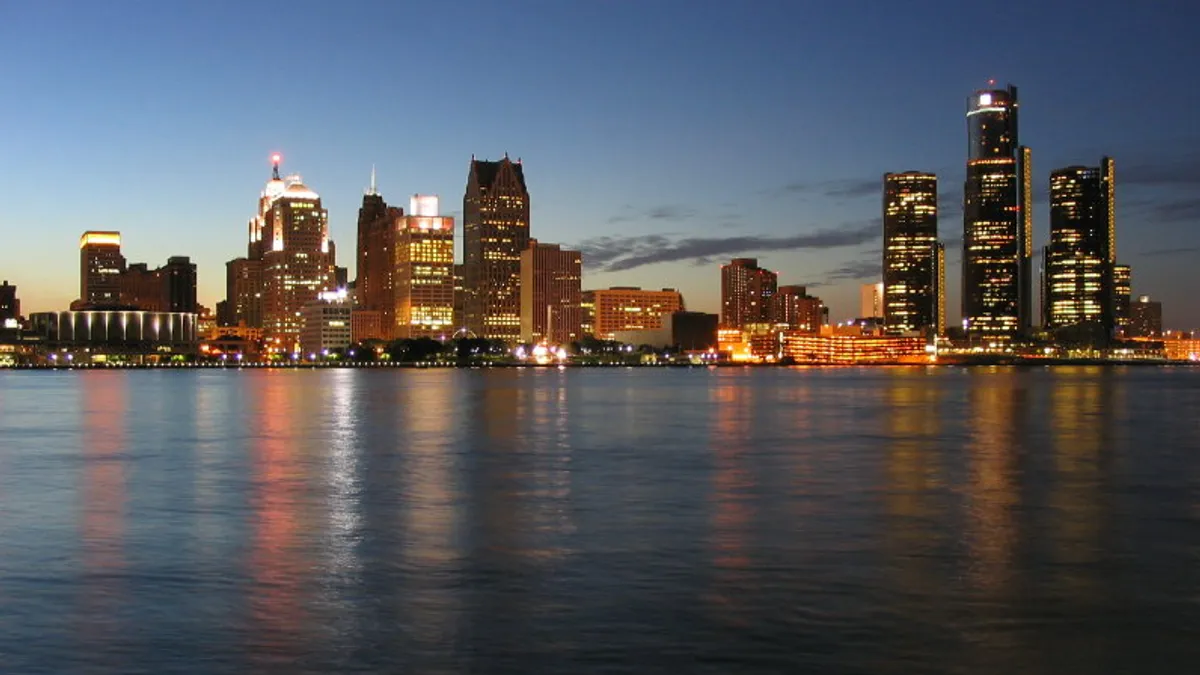Dive Brief:
- Heads of four of the biggest hospitals in Detroit signed a joint letter to the Detroit Free Press, arguing the city’s lack of transit options creates a public health risk.
- The letter said if communities are not connected, patients are prevented from accessing regular healthcare. “Affordable and accessible transit boosts public health by making communities more walkable, providing greater ability to access health services and quality food,” they wrote.
- John Fox, President and CEO of Beaumont Health; Jean Meyer, Chief Operating Officer, Ascension Michigan; Dr. Anthony J. Tedeschi, CEO of Detroit Medical Center; and Wright L. Lassiter III, President and CEO of Henry Ford Health System signed the letter, which ran earlier this week in the newspaper.
Dive Insight:
This letter is the latest published in the Detroit Free Press to make the case for the city to improve its transit. In mid-April, 23 business leaders signed a similar letter urging the region’s political leaders to move quickly on a transit plan for the region. Wayne County Executive Warren Evans has proposed a 20-year, $5.4 billion regional transit plan, but the lack of a clear strategy has roiled locals and played a role in the city not making the shortlist for Amazon’s HQ2.
Unlike the previous letter, this latest piece argues that the lack of transit means the elderly, children and those living on low incomes suffer the most, as they are less able to go to appointments and fill prescriptions. In doing so, healthcare is delayed, which can result in more emergency room visits and calls to 911 for an ambulance. “But most importantly, we are care providers whose patients suffer because our region has yet to come together in support of a regional transit system,” the four wrote. “We are committed to changing that in 2018.”
The four argue transit also makes communities more walkable as well as making health services and quality food more accessible, which in turn also boosts public health. More and more cities are investing in transit, and doing so in an environmentally-friendly way, including in the likes of San Diego, CA, Toronto and Los Angeles. This is with a hope of reducing carbon emissions, which in turn can improve people’s quality of life and their health.
While Uber has launched a healthcare-related platform to give patients rides, the pressure is mounting on Detroit and the surrounding counties to come up with a plan for the region’s transit, as more and more people make the case and explore different reasons for why it makes sense. The political will and the money to fund any project will need to exist, but there is broad public support for Detroit to advance a plan that works.












